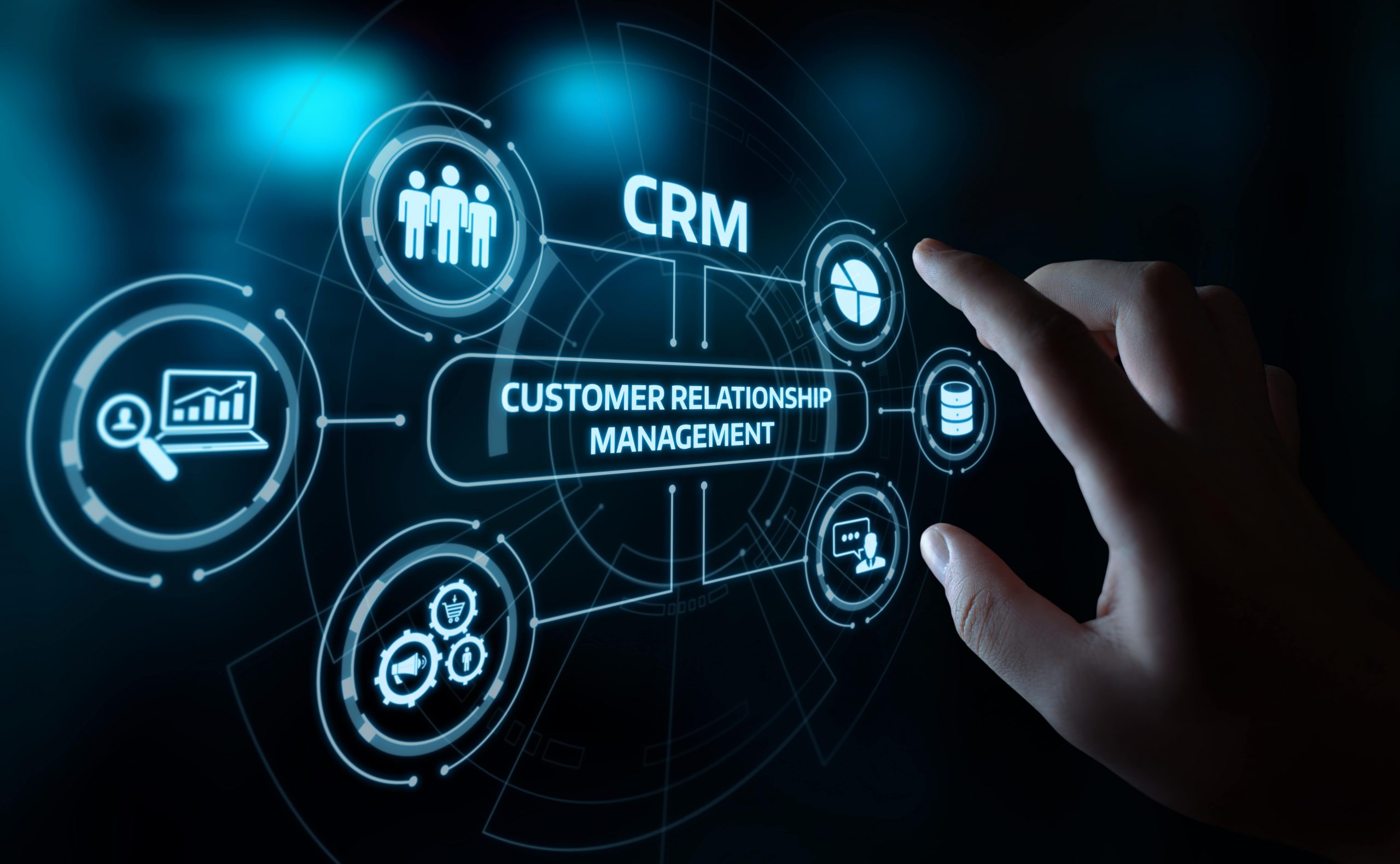Customers are the lifeblood of every business, and it is important to ensure excellent customer experience to succeed among competitors and stand out from the crowd. Good customer service increases customer satisfaction, leads to positive word-of-mouth referrals, improves the brand image, builds customer trust, increases profitability, and enables fast-paced business growth. This is where CRM comes into play!
CRM, which means customer relationship management, is a combination of strategies, practices, and systems for managing customer information across all customer interactions and communications to enhance customer experience and build a relationship. When CRM is implemented correctly, organizations will be able to improve customer experience and exponentially increase customer satisfaction leading to increased sales and higher profits.
With the advancement of technology, all organizations—small, medium, or large—can use generic or customized CRM solutions to take their customer relationships to the next level. IBB’s ERP system has an inbuilt CRM module to support all aspects of CRM enabling efficient and effective management and analysis of customer data and customer interactions for improved strategy formulation; decision-making; and customer satisfaction, experience, and retention; throughout the customer lifecycle.
A Botched CRM Process Can Lead to Negative Customer Experience
We’ve understood that CRM is critical for business success. To further emphasize its importance, let’s understand how a badly planned and implemented CRM system can result in a negative customer experience leading to terrible business outcomes.
What is Customer Experience?
Customer experience is the impression and opinion that a customer forms about a business, brand, product, or service from their direct and indirect interactions with the company. Interactions include advertising and promotional activities, customer service, quality of customer care, product features and ease of use, reliability, after-sales services, information gathered from customer reviews, and many other such aspects. Customer experience is subjective to individuals and can impact the customer’s relationship with an organization.
- Decreasing customer satisfaction: When customers are not satisfied with a product or service, this leads to negative customer experiences. Customers will look for alternatives leading to a loss of customers and a slowdown in onboarding new customers.
- Decreasing customer loyalty: Negative experiences make customers feel unappreciated and unvalued, leading them to switch to a competitor brand.
- Falling sales and profits: Poor customer experience will also result in falling sales and profits hindering business growth and success.
- Deteriorating company/brand reputation: Negative customer experiences can cause damage to a brand’s reputation because dissatisfied customers share their negative experiences with friends, colleagues, and peers. With the availability of social media sharing bad experiences and negative opinions across communities is also very easy, resulting in businesses losing not only existing customers but also prospective customers.
- Inefficient processes: A poorly designed CRM system can create unnecessary steps, slow down processes, and increase errors and make it tedious for customers to use.
- Data inaccuracies: If a CRM is not properly designed then data management can become an issue, with the system storing inaccurate information about customers and leads, which can negatively impact the sales and marketing efforts of a business resulting in reducing the overall experience of the customer with the brand.
- Possibility of Lawsuits: Negative customer experiences could lead to fines, penalties, and in some cases legal action, damaging the brand image and reducing the company’s ability to create value for stakeholders.
A CRM system should be designed in line with customer needs and preferences, consider business goals, and implemented and maintained in an efficient and user-friendly way.
CRM is a 360° Solution
CRM is considered a 360° solution because it provides businesses with a comprehensive and ready-to-use system for managing customer interactions and data. It is a useful tool for tracking how customers interact with your business and identifying areas of improvement.
With a turnkey CRM solution, the software is already pre-configured, so the business does not have to invest time and resources in customizations; and integrating the solution into its existing ERP systems is easier. This allows organizations to start using the software immediately and focus on using its features to streamline customer relationship management processes.
With the implementation of a CRM system businesses can better understand their customers and cater to their unique needs, increasing customer satisfaction levels and improving customer experiences. This makes CRM a convenient and efficient investment for businesses looking to improve their customer relationships and achieve their business goals.
Let’s discuss the 8 ways a right-fit CRM system can improve customer experience and support sustainable business growth in challenging environments.
Boost Customer Experience by Utilizing These 8 CRM Approaches
Approach# 1: Customization
Customers praise what they want more than what you offer. An efficient CRM tool gathers customers’ data including contact information and their shopping preferences which aid in creating customized messages and product offerings for customers. Using customization, customers feel more valued as products or services are designed according to their specific needs.
Approach# 2: Bifurcated Customer Experience
Businesses need to synchronize their CRM software with their business practices and teach employees the benefits of CRM for long-term customer retention and higher sales. Businesses need to perform an in-depth analysis of customer feedback to understand what a customer likes and dislikes so that the negatives could be turned into positives and the overall experience improved as much as possible.
Approach# 3: Open Communication
CRM helps in communicating with customers in several ways such as email, live chat, or calls. Multiple ways of communication improve customer service levels and ultimately increases customer experience. Day-to-day problems can be resolved immediately, and regular and continuously ongoing communication with customers would make certain the brand is on top-of-mind recall while issues are handled at the point of origin before they worsen.
Approach# 4: Relevant Data
Fulfilling customer expectations requires accurate and reliable information such as in-depth knowledge about the demographics, buying habits, and purchase history of the customer together with customer concerns and product-related inquiries. The information must be up-to-date and organized. A state-of-the-art ERP system with a reliable CRM module will enable accurate information to be retrieved for organizations to develop customer-centric business strategies.
Approach# 5: Improved Customer Service
A CRM solution incorporated within an ERP will support organizations to improve their customer service levels by enabling efficient communication and driving marketing efforts. Business processes could be personalized to customer-specificities and automated via CRM technology leading to a holistic customer experience.
Approach# 6: Lasting Customer Relationships
Customers are essential to every business, no business can survive without customers, and dissatisfied customers can lead to an organization’s downfall. CRM solutions streamline business operations, improve customer experience, and strengthen customer relationships. Better customer relationships result in increased customer loyalty, improved customer satisfaction, and higher sales and profits.
Approach# 7: Timely Response
To stand out amongst competitors, a brand must differentiate its product/service offering to its customers. Considering the fast-paced world we live in, and the sometimes fickle nature of consumer trends, organizations must sell to customers the right product at the right time. Additionally, companies must respond to customer inquiries and questions promptly. An organization that values customers’ time by responding to them quickly will benefit in the long term. A CRM can automate many mundane tasks and provide pre-set responses to basic inquiries and questions. Additionally, such functions as query tracking, recording customer communications, and allocating tickets for inquiries will invariably streamline internal processes and add value and improve the overall customer experience with the company.
Approach# 8: Complaint Handling
Customer Complaints also is a part of any business but handling such complaints wisely is the key to customer retention and satisfaction. A CRM is an effective tool for handling customer complaints as it can be used to create, manage, and track customer complaints and resolution status across the grievance handling process. Additionally, an integrated system with several communication channels will ease the receipt and response to customer complaints through proper routing and follow-ups. CRM functionalities that analyze complaints data and identify trends will help improve the complaint-handling processes. With proper tracking mechanisms resolution status can also be managed to lead to improved customer satisfaction and trust.
CRMs are also a great platform to analyze and track customer feedback and better understand customer needs to direct future business strategies and improve customer service and satisfaction levels.
IBB’s ERP Solution Offers an Enhanced CRM Module to Support Business Growth!
A loyal customer is usually a happy customer whose customer experience with an organization is very high.
Call us to find out more about our cloud-based ERP solution which is integrated with a comprehensive CRM module to support an organization in efficiently managing their customer experiences and building long-term customer relationships.
IBB’s ERP solution is suitable for retailers, wholesalers, and distributors operating in any industry and of any business size.



